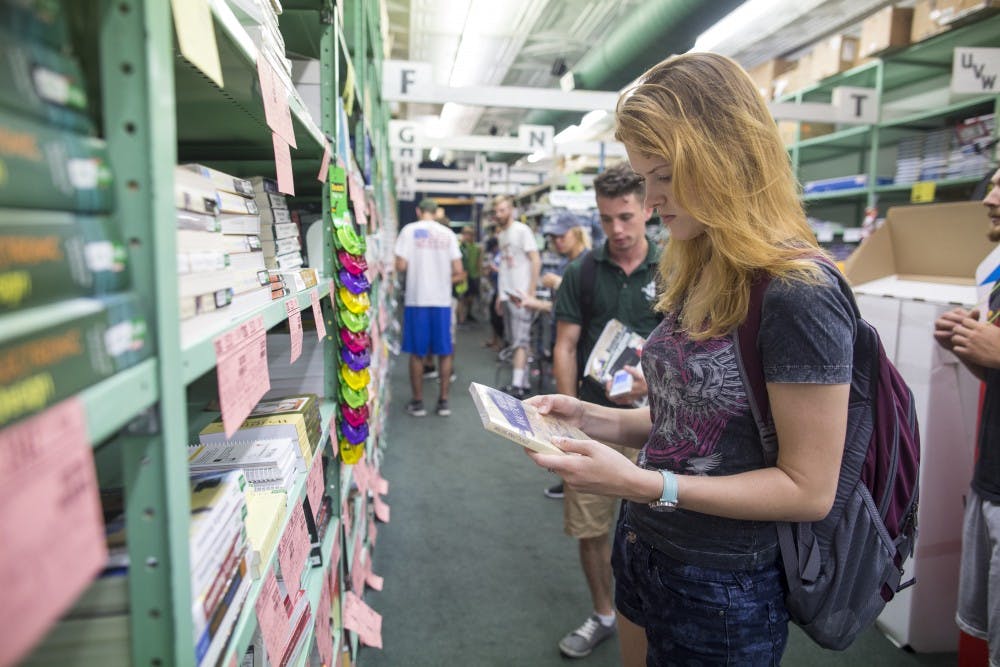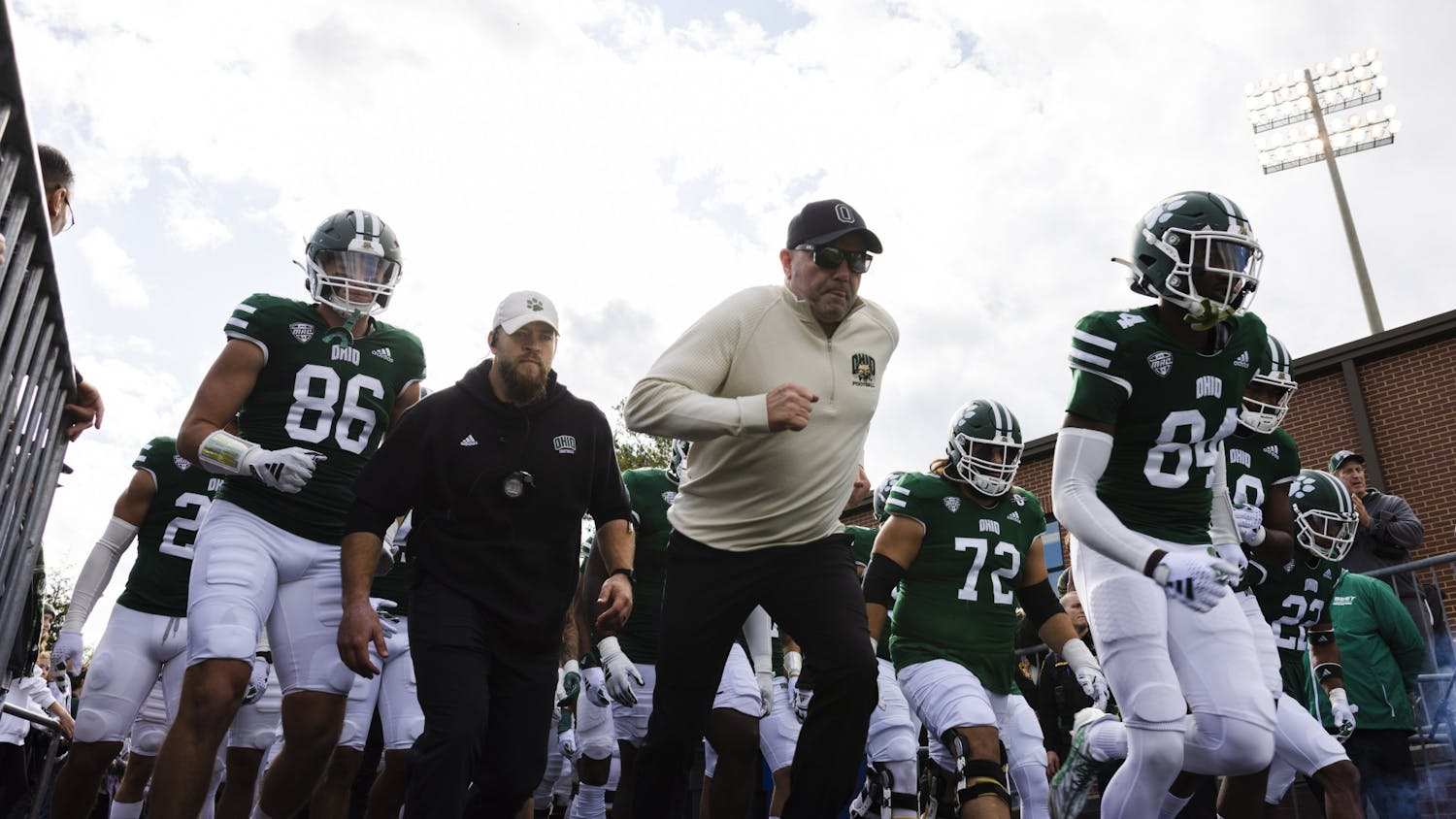Editors's Note: This story has been updated to reflect the version that appeared in our weekly print edition.
Some Ohio University professors are ditching required textbooks — and the prices — to try and help students save on their college expenses.
The average undergraduate student at a public, four-year university spends about $1,300 on textbooks and school supplies per year, according to 2015-16 data from College Board’s website. Instead of adding to that statistic, some OU professors have taken to scanning materials to post online and utilizing other technology resources to reduce costs for students.
Associate history professor Robert Ingram is one of the professors who has been spending time over a scanner for the sake of their students. When he announced to his Western Civilization class that there would be no textbook required, he said he was met with a sigh of relief.
“I have dozens of dozens of students say, ‘thanks for not breaking my bank account,’” Ingram said.
That wasn’t always his classroom model.
Ingram said when he first started teaching at OU that he used textbooks, but soon realized how expensive they were for students. When the university changed its schedule from quarters to semesters, Ingram had a chance to decide whether he wanted to make any changes to his courses.
“I want them to think and read deeply in primary sources,” Ingram said.
Instead of having a textbook that only has seven or eight sentences about a specific author, Ingram said he prefers to have his students read seven to eight pages written by that author.
“I see those (prices) and they seem obscene to pay so much for tuition,” Ingram said. “It’s such a huge proportion of students' budget.”
So, Ingram took to scanning.
The responsibility to comply with copyright compliance falls on the instructor when posting to Blackboard, according to the Ohio University Libraries website. Although it is the instructor's responsibility, the site states the library may refuse to accept a request if it thinks it could violate copyright law.
But within that copyright law, the fair use doctrine states that copying for certain purposes are legal, including multiple ways faculty use the material they post in their classrooms, according to an article about Intellectual Property Issues for Faculty by Ann Springer on the American Association of University Professors’ website.
“The statute sets out a non-exclusive list of purposes that are assumed to be of benefit to society and thus eligible for fair use protection,” the article reads.
The list includes the ability to reproduce portions of material for students’ use, though, for example, a full textbook couldn’t be posted to Blackboard.
David Bell, a professor in the linguistics department, uses similar models of duplication in his undergraduate classes.
Most of the texts that his students need are on Blackboard, or are available as a PDF, Bell said.
“It’s a case of being aware what kind of investments you can expect your students to make in the class,” Bell said.
When he started teaching at OU 17 years ago, he assigned books for his graduate class, but was met with some dismay on the first day of class.
“I walked into class the first day, and a student, being a graduate student, said ‘Professor Bell, do you realize the text for this class (is) over $100?’ ” Bell said.
The student was right. Bell added that he has also been more conscious of textbook prices due to his two daughters, who are taking classes at OU, reporting back to him how much their textbooks cost.
In 2007, the average price of a new textbook was $57. In 2013, it was $79, according to the National Association of College Stores.
“Throughout my time here at OU I try to keep those costs down,” Bell said. “Of course it’s gotten easier with all of the electronic material available.”
The digital shift that has caused materials to be more accessible on the internet was apparent to first-year graduate student Mariah Hagadone-Bedir, who studies education and critical studies.
“The trend seems to be going to no textbooks because of the digital technology everywhere,” Hagadone-Bedir said, pointing to students who utilize their laptops, tablets and smartphones for easy access to digital textbooks.
With her undergraduate degree in biology, she said she always had to buy thick science books.
As she starts her graduate program, Hagadone-Bedir said her professors have been “very vocal” about the services that Alden Library provides, for either books on course reserve or ordering textbooks from other Ohio libraries via OhioLINK.
“I’ve had to buy very few textbooks,” Hagadone-Bedir said.






